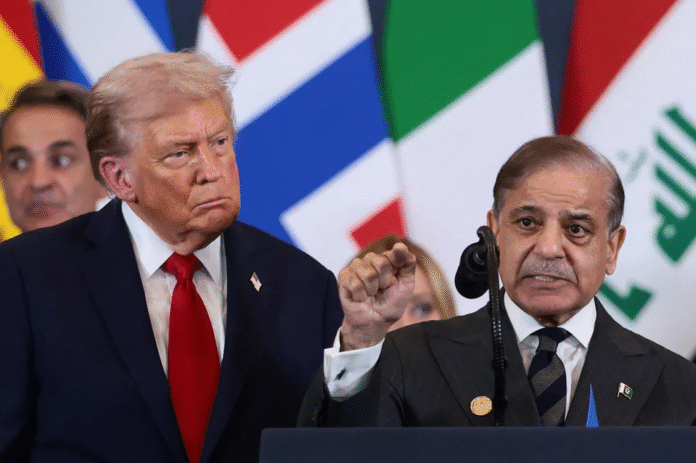WASHINGTON (TRT World) – Indonesia, Azerbaijan, and Pakistan have emerged as the front runners to contribute troops to a proposed International Stabilization Force (ISF) for Gaza, as negotiations advance under U.S. President Donald Trump’s 20-point peace plan, according to U.S. defense officials cited by Politico.
The three nations “have expressed the most interest” in deploying personnel to the war-torn Palestinian enclave, which has endured over two years of devastating conflict, though no formal commitments have been secured yet. The officials, speaking anonymously about ongoing sensitive discussions, emphasized that talks on the force’s composition remain fluid.
Trump’s blueprint, unveiled in late September, envisions the ISF as a temporary multinational contingent led by Arab and international partners to train and bolster vetted Palestinian police forces, secure borders with Israel and Egypt, and pave the way for Gaza’s demilitarization and reconstruction. The U.S. has explicitly ruled out stationing American troops inside Gaza but has dispatched 200 personnel to a civil-military coordination center north of the territory in Israel, under U.S. Central Command, to aid ceasefire monitoring. Egyptian, Qatari, and Emirati forces are also expected to join this coordination effort.
The plan’s Phase Two, now under active negotiation, includes establishing a new technocratic governing body for Gaza, forming the ISF, and requiring Hamas to disarm—a point Trump underscored on Tuesday, stating he had directly conveyed to the group that “they will disarm or we will disarm them.” The ceasefire, which has held since Hamas released 20 living hostages and seven bodies earlier this week in exchange for about 2,000 Palestinian prisoners, is backed by guarantors including Türkiye, Egypt, and Qatar, who signed a peace document with Trump this week.
Indonesia stands out as the only candidate to publicly offer support so far, with President Prabowo Subianto proposing up to 20,000 troops under a UN-mandated framework—though Trump’s plan does not specify UN involvement. Coordinating with non-Middle Eastern nations like Indonesia and Azerbaijan, outside CENTCOM’s typical area of responsibility, poses logistical challenges, a former U.S. defense official noted.
Meanwhile, Türkiye has signaled strong willingness to engage. Following President Recep Tayyip Erdoğan’s announcement of Ankara’s participation in a ceasefire monitoring task force, the Turkish Defense Ministry affirmed the armed forces’ readiness for any assigned mission, highlighting their track record in international peacekeeping. “The Turkish Armed Forces… have earned the respect of all parties with their professionalism and fair conduct,” the ministry stated, per Daily Sabah.
The Sharm el-Sheikh summit earlier this week, attended by over 20 nations, marked a pivotal step toward Phase Two implementation, including hostage recovery efforts where Egyptian teams are assisting in retrieving remains from Gaza. Experts caution that while the ISF could stabilize the enclave—devastated by widespread destruction and displacement—the plan’s success hinges on Hamas’s compliance, Palestinian governance reforms, and sustained international buy-in.
As Trump pushes for “pragmatism and results,” the emerging coalition underscores a shift toward broader Muslim-majority involvement in Gaza’s future, potentially bridging divides in the region’s fragile peace process.




